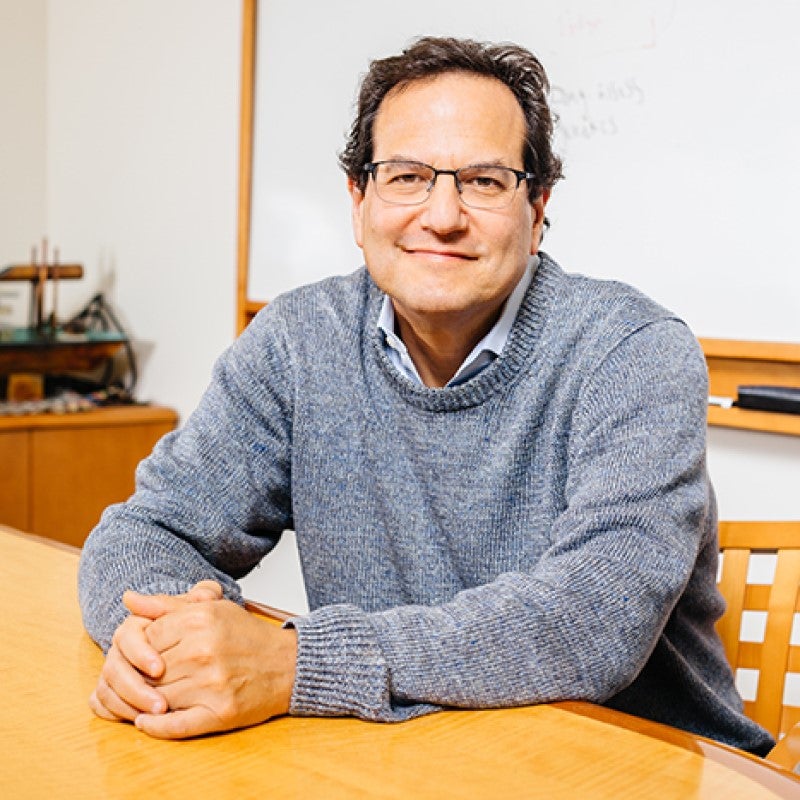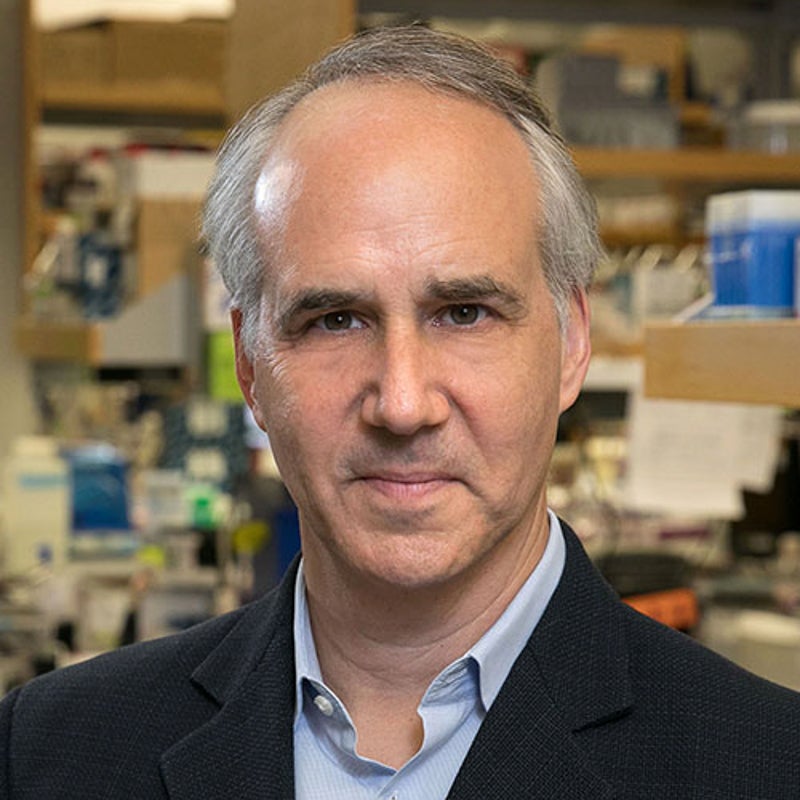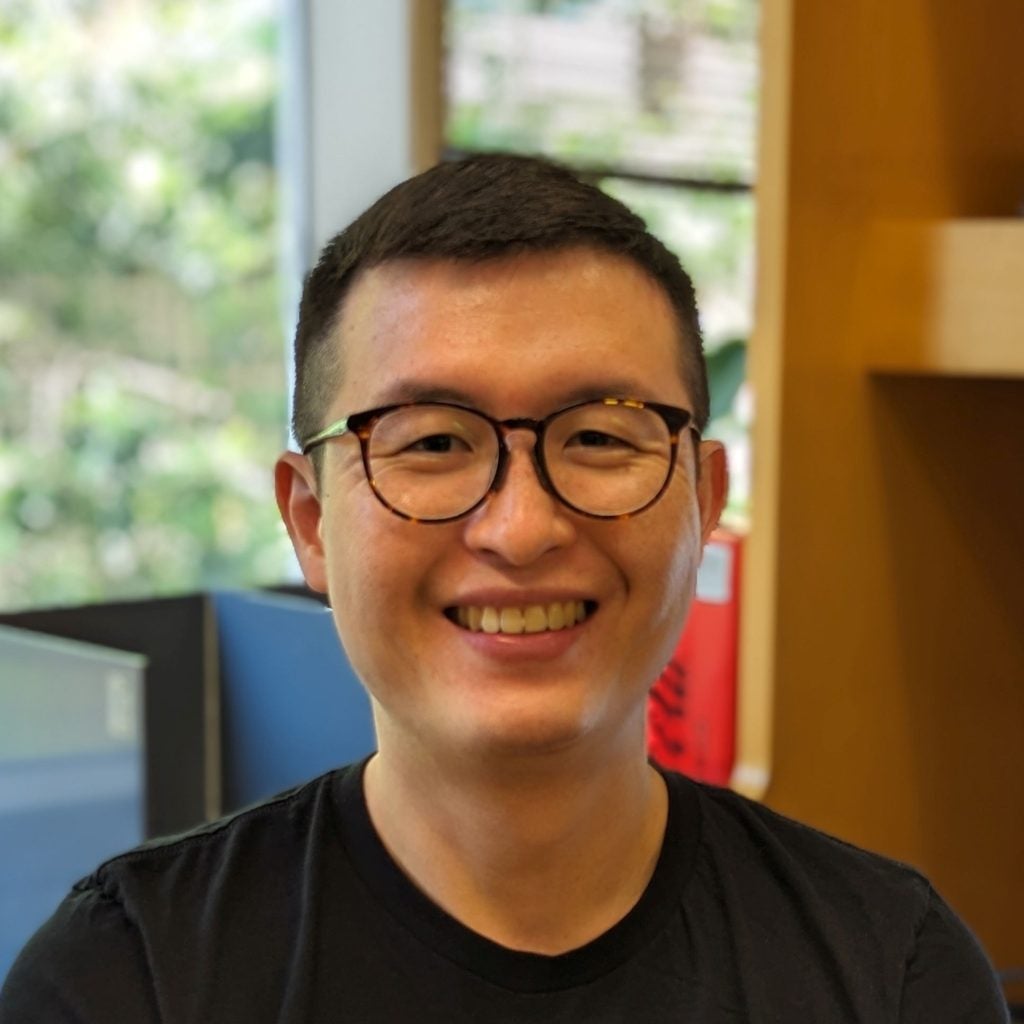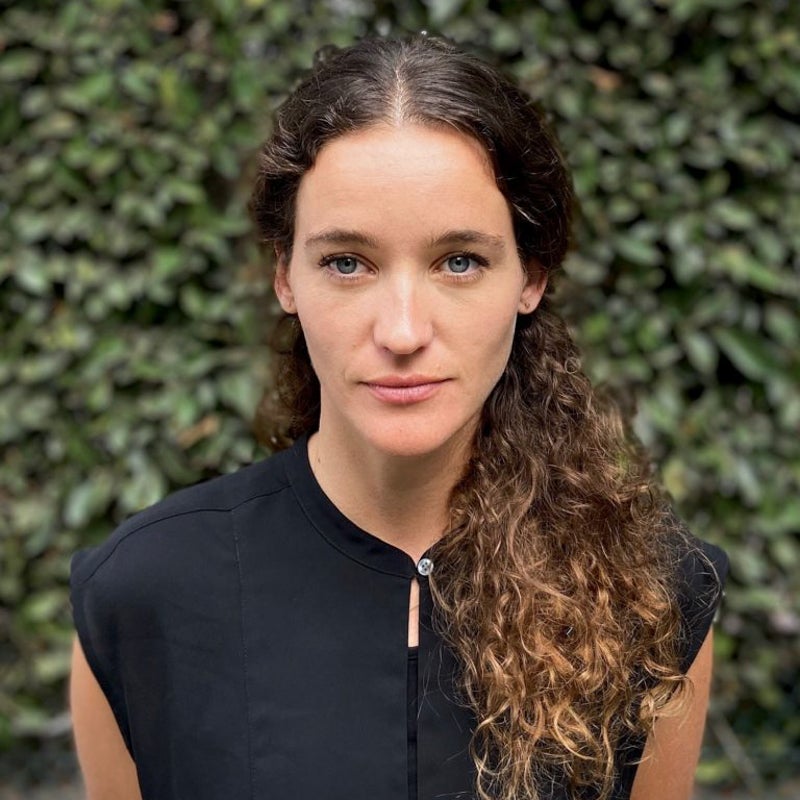Core Faculty

Nelson Freimer, MD
Director, Center for Neurobehavioral Genetics

Nelson Freimer, MD
Director, Center for Neurobehavioral Genetics
Director, Depression Grand Challenge
Maggie G. Gilbert Professor of Psychiatry & Biobehavioral Sciences
Nelson B. Freimer, MD is the Maggie G. Gilbert Endowed Chair and Distinguished Professor of Psychiatry and Human Genetics at UCLA. He is the Founding Director of the UCLA Center for Neurobehavioral Genetics and of the UCLA Neuroscience Genomics Core. Dr. Freimer’s research focuses on the use of novel strategies for behavioral phenotyping and large-scale genomics methods to identify the genetic basis of complex traits, including such neurobehavioral disorders as bipolar disorder, schizophrenia, and depression. He also leads the UCLA Depression Grand Challenge (DGC), a university-wide initiative that aims to transform our understanding and treatment of depression and thereby cut the burden that it represents to health and well-being in half by the year 2050. Within the DGC he is the PI of the UCLA-Apple Digital Mental Health Study.
Depression Grand Challenge | Pubmed Bibliography Page
Maggie G. Gilbert Professor of Psychiatry & Biobehavioral Sciences
Nelson B. Freimer, MD is the Maggie G. Gilbert Endowed Chair and Distinguished Professor of Psychiatry and Human Genetics at UCLA. He is the Founding Director of the UCLA Center for Neurobehavioral Genetics and of the UCLA Neuroscience Genomics Core. Dr. Freimer’s research focuses on the use of novel strategies for behavioral phenotyping and large-scale genomics methods to identify the genetic basis of complex traits, including such neurobehavioral disorders as bipolar disorder, schizophrenia, and depression. He also leads the UCLA Depression Grand Challenge (DGC), a university-wide initiative that aims to transform our understanding and treatment of depression and thereby cut the burden that it represents to health and well-being in half by the year 2050. Within the DGC he is the PI of the UCLA-Apple Digital Mental Health Study.
Depression Grand Challenge | Pubmed Bibliography Page

Dan Geschwind, MD, PhD
Co-Director, Center for Neurobehavioral Genetics

Dan Geschwind, MD, PhD
Co-Director, Center for Neurobehavioral Genetics
Gordon and Virginia MacDonald Distinguished Professor in Neurology, Psychiatry and Human Genetics
Senior Associate Dean and Associate Vice Chancellor for Precision Health
Director, Center for Autism Research and Treatment
Dr. Dan Geschwind is the Gordon and Virginia MacDonald Distinguished Professor of Human Genetics, Neurology and Psychiatry and Senior Associate Dean and Associate Vice Chancellor of Precision Health at UCLA, where he leads the Institute of Precision Health and Center for Autism Research and Treatment. The laboratory merges population genetics, functional genomics, and stem-cell-based organoid and mouse models to connect genetic risk to discover underlying neurobiological mechanisms of disease and develop new treatments. The laboratory’s disease focus includes autism and related neurodevelopment disorders and neurodegenerative dementias, but the integrative genomic approaches used by the lab broadly applicable and have been applied to many brain disorders.
Geschwind Lab Website | Google Scholar Page
Senior Associate Dean and Associate Vice Chancellor for Precision Health
Director, Center for Autism Research and Treatment
Dr. Dan Geschwind is the Gordon and Virginia MacDonald Distinguished Professor of Human Genetics, Neurology and Psychiatry and Senior Associate Dean and Associate Vice Chancellor of Precision Health at UCLA, where he leads the Institute of Precision Health and Center for Autism Research and Treatment. The laboratory merges population genetics, functional genomics, and stem-cell-based organoid and mouse models to connect genetic risk to discover underlying neurobiological mechanisms of disease and develop new treatments. The laboratory’s disease focus includes autism and related neurodevelopment disorders and neurodegenerative dementias, but the integrative genomic approaches used by the lab broadly applicable and have been applied to many brain disorders.
Geschwind Lab Website | Google Scholar Page

Carrie Bearden, PhD
Professor, Departments of Psychiatry & Biobehavioral Sciences and Psychology
Program Director, UCLA Staglin Music Festival Center for the Assessment and Prevention of Prodromal States (CAPPS)
Dr. Carrie Bearden’s research aims to understand genetic influences on brain structure in the development of serious mental illness, using converging methods to study intermediate neurobehavioral traits in clinical high-risk cohorts and in highly penetrant genetic subtypes (e.g, 22q11.2 microdeletions). She also collaborates with Drs. Nelson Freimer and Loes Loohuis on large-scale studies of the genetics of serious mental illness in Latin America. She co-directs the T32 Training Program in Neurobehavioral Genetics with Dr. Roel Ophoff.
Bearden Lab Website | CAPPS | Pubmed Bibliography Page
Program Director, UCLA Staglin Music Festival Center for the Assessment and Prevention of Prodromal States (CAPPS)
Dr. Carrie Bearden’s research aims to understand genetic influences on brain structure in the development of serious mental illness, using converging methods to study intermediate neurobehavioral traits in clinical high-risk cohorts and in highly penetrant genetic subtypes (e.g, 22q11.2 microdeletions). She also collaborates with Drs. Nelson Freimer and Loes Loohuis on large-scale studies of the genetics of serious mental illness in Latin America. She co-directs the T32 Training Program in Neurobehavioral Genetics with Dr. Roel Ophoff.
Bearden Lab Website | CAPPS | Pubmed Bibliography Page

Patrick Chen, PhD
Adjunct Assistant Professor Department of Psychiatry & Biobehavioral Sciences
Dr. Patrick Chen’s primary research interests involve understanding the mechanisms by which genes affect behavior. Genetic sequence variation substantially alters the behaviors of an organism—sometimes even larger than the deletion of an entire gene: how do these genetically determined behavioral differences arise from differences in the underlying circuitry? He approaches this question by applying circuit techniques in different mouse strains to localize genetic effects to particular circuits and circuit features in the brain, and then by probing the differences in molecules, cells, and physiology of these circuits.
Google Scholar Page
Dr. Patrick Chen’s primary research interests involve understanding the mechanisms by which genes affect behavior. Genetic sequence variation substantially alters the behaviors of an organism—sometimes even larger than the deletion of an entire gene: how do these genetically determined behavioral differences arise from differences in the underlying circuitry? He approaches this question by applying circuit techniques in different mouse strains to localize genetic effects to particular circuits and circuit features in the brain, and then by probing the differences in molecules, cells, and physiology of these circuits.
Google Scholar Page

Eliza Congdon, PhD
Associate Professor, Department of Psychiatry & Biobehavioral Sciences
Project Director, UCLA Depression Grand Challenge Human Studies
Dr. Eliza Congdon’s research interests are in the neurobiological mechanisms of depression and response to fast-acting treatment interests. She is the Project Director of the UCLA Depression Grand Challenge, which is a campus-wide initiative aimed at making UCLA the leading institution in a global effort to cut the worldwide burden of depression in half by 2050.
Pubmed Bibliography Page
Project Director, UCLA Depression Grand Challenge Human Studies
Dr. Eliza Congdon’s research interests are in the neurobiological mechanisms of depression and response to fast-acting treatment interests. She is the Project Director of the UCLA Depression Grand Challenge, which is a campus-wide initiative aimed at making UCLA the leading institution in a global effort to cut the worldwide burden of depression in half by 2050.
Pubmed Bibliography Page

Jonathan Flint, PhD
Billy and Audrey Wilder Endowed Chair in Psychiatry and Neuroscience
Professor, Department of Psychiatry & Biobehavioral Sciences
Dr. Jonathan Flint’s laboratory investigates the causes of depression, taking as a starting point the known genetic susceptibility to the disorder. They map genetic loci in different populations (East Asian and European) and are attempting to deploy strategies to pull apart the heterogeneity of depression, using for example voice recordings combined with genetic data as a way to identify subtypes.
Flint Lab Website | Google Scholar Page
Professor, Department of Psychiatry & Biobehavioral Sciences
Dr. Jonathan Flint’s laboratory investigates the causes of depression, taking as a starting point the known genetic susceptibility to the disorder. They map genetic loci in different populations (East Asian and European) and are attempting to deploy strategies to pull apart the heterogeneity of depression, using for example voice recordings combined with genetic data as a way to identify subtypes.
Flint Lab Website | Google Scholar Page

C.Y. Daniel Lee, PhD
Adjunct Assistant Professor, Department of Psychiatry & Biobehavioral Sciences
Dr. C.Y. Daniel Lee is an adjunct assistant professor in the Department of Psychiatry & Biobehavioral Sciences at David Geffen School of Medicine at UCLA. He received his B.S. and M.S. degree from National Taiwan University in Taiwan. After fulfilling his military service duty, he came to the United States to pursue doctoral education at Case Western Reserve University, where he studied the pathogenesis of Alzheimer’s disease in the laboratory of Dr. Gary Landreth, and received his Ph.D. degree in Neuroscience in 2012. He did his postdoctoral training with Dr. X. William Yang at UCLA, using human genomic mouse models to study Huntington’s disease and Alzheimer’s disease, and joined UCLA faculty in 2019. His current research integrates mouse genetics, systems biology and cell biology to study the role and regulation of microglial function in the pathogenesis of Alzheimer’s disease. He also leads the projects of high-throughput drug screening and biomarker development for neurodegenerative diseases.
Pubmed Bibliography Page
Dr. C.Y. Daniel Lee is an adjunct assistant professor in the Department of Psychiatry & Biobehavioral Sciences at David Geffen School of Medicine at UCLA. He received his B.S. and M.S. degree from National Taiwan University in Taiwan. After fulfilling his military service duty, he came to the United States to pursue doctoral education at Case Western Reserve University, where he studied the pathogenesis of Alzheimer’s disease in the laboratory of Dr. Gary Landreth, and received his Ph.D. degree in Neuroscience in 2012. He did his postdoctoral training with Dr. X. William Yang at UCLA, using human genomic mouse models to study Huntington’s disease and Alzheimer’s disease, and joined UCLA faculty in 2019. His current research integrates mouse genetics, systems biology and cell biology to study the role and regulation of microglial function in the pathogenesis of Alzheimer’s disease. He also leads the projects of high-throughput drug screening and biomarker development for neurodegenerative diseases.
Pubmed Bibliography Page

Loes Olde Loohuis, PhD
Assistant Professor-in-Residence, , Department of Psychiatry & Biobehavioral Sciences
Dr. Loes Olde Loohuis’ research focuses on elucidating the underlying molecular mechanisms of severe mental illness, in particular schizophrenia and bipolar disorder, by utilizing and developing computational approaches to leverage multi-level data (including psychiatric phenotypes, health records and molecular phenotypes).
Olde Loohuis Lab Website | Google Scholar Page
Dr. Loes Olde Loohuis’ research focuses on elucidating the underlying molecular mechanisms of severe mental illness, in particular schizophrenia and bipolar disorder, by utilizing and developing computational approaches to leverage multi-level data (including psychiatric phenotypes, health records and molecular phenotypes).
Olde Loohuis Lab Website | Google Scholar Page

Roel Ophoff, PhD
Professor, Departments of Psychiatry & Biobehavioral Sciences and Human Genetics
Dr. Roel Ophoff is a professor of Psychiatry and Human Genetics at the UCLA School of Medicine. His research aims to decipher the genetic basis of neuropsychiatric traits such as schizophrenia and bipolar disorder. Large-scale genomic studies are employed to identify susceptibility loci, which are further interpreted through integration of genomic data, including molecular phenotypes such as gene expression, epigenetic profiling and metabolite levels. He directs the T32 Training Program in Neurobehavioral Genetics together with Dr. Carrie Bearden.
Pubmed Bibliography Page | Google Scholar Page
Dr. Roel Ophoff is a professor of Psychiatry and Human Genetics at the UCLA School of Medicine. His research aims to decipher the genetic basis of neuropsychiatric traits such as schizophrenia and bipolar disorder. Large-scale genomic studies are employed to identify susceptibility loci, which are further interpreted through integration of genomic data, including molecular phenotypes such as gene expression, epigenetic profiling and metabolite levels. He directs the T32 Training Program in Neurobehavioral Genetics together with Dr. Carrie Bearden.
Pubmed Bibliography Page | Google Scholar Page

Christina Palmer, MS, PhD
Professor-in-Residence, Departments of Psychiatry & Biobehavioral Sciences and Human Genetics
Dr. Christina Palmer is a geneticist who specializes in genetic counseling for deafness, and for psychiatric conditions. She is actively involved in undergraduate, graduate, and medical education. Dr. Palmer is presently facilitating a collaboration of disciplines including genetics, deaf studies, audiology, psychology, and statistics to examine the individual and societal impact of genetic testing for deafness.
Dr. Christina Palmer is a geneticist who specializes in genetic counseling for deafness, and for psychiatric conditions. She is actively involved in undergraduate, graduate, and medical education. Dr. Palmer is presently facilitating a collaboration of disciplines including genetics, deaf studies, audiology, psychology, and statistics to examine the individual and societal impact of genetic testing for deafness.

X. William Yang, MD, PhD
Professor, Department of Psychiatry & Biobehavioral Sciences
Terry Semel Chair in Alzheimer’s Disease Research and Treatment
Dr. Yang’s laboratory integrates mouse genetics and systems biology to study pathogenesis and therapeutics of neurodegenerative disorders, including Huntington’s disease, Alzheimer’s disease, and Parkinson’s disease. His laboratory also develops novel neurotechnologies to illuminate the brain-wide morphology and connectivity of neurons and glial cells, and applies these powerful tools to study brain cells during healthy aging or in age-dependent brain diseases.
Yang Lab Website | Google Scholar Page
Terry Semel Chair in Alzheimer’s Disease Research and Treatment
Dr. Yang’s laboratory integrates mouse genetics and systems biology to study pathogenesis and therapeutics of neurodegenerative disorders, including Huntington’s disease, Alzheimer’s disease, and Parkinson’s disease. His laboratory also develops novel neurotechnologies to illuminate the brain-wide morphology and connectivity of neurons and glial cells, and applies these powerful tools to study brain cells during healthy aging or in age-dependent brain diseases.
Yang Lab Website | Google Scholar Page
Lorem ipsum dolor sit amet, consectetur adipiscing elit. Ut elit tellus, luctus nec ullamcorper mattis, pulvinar dapibus leo.

